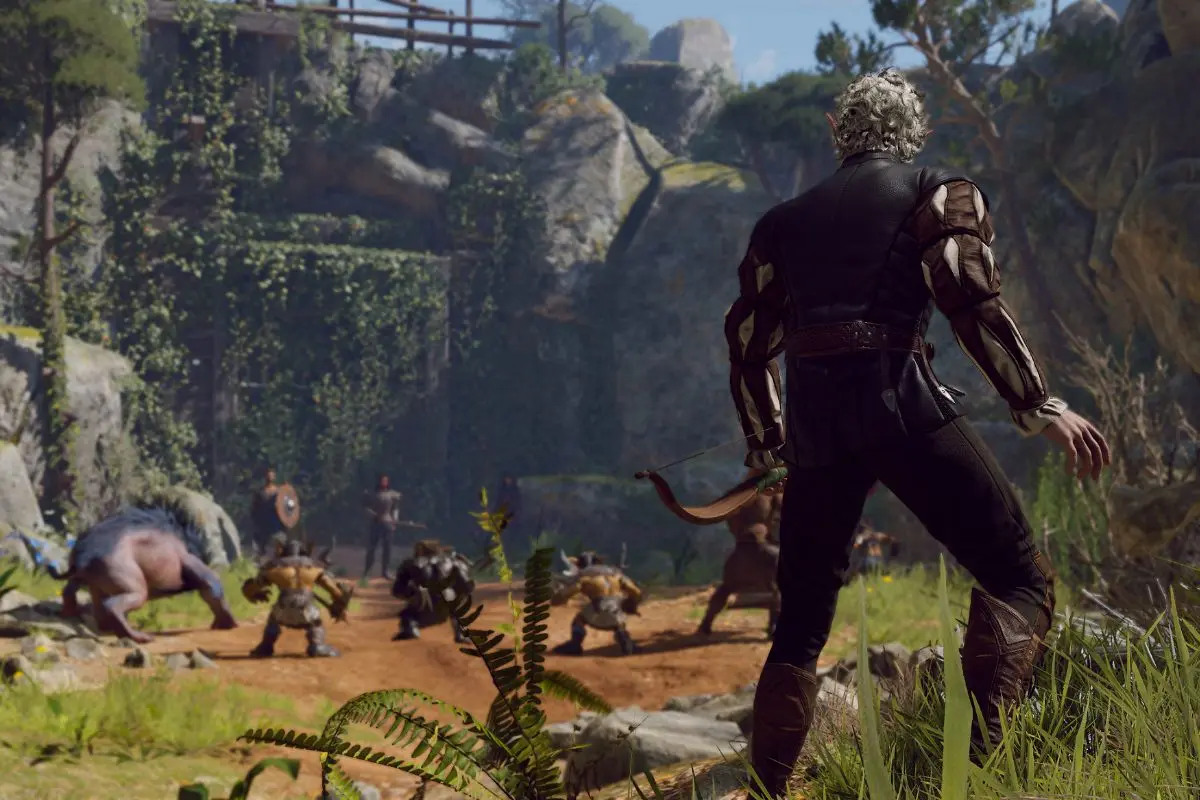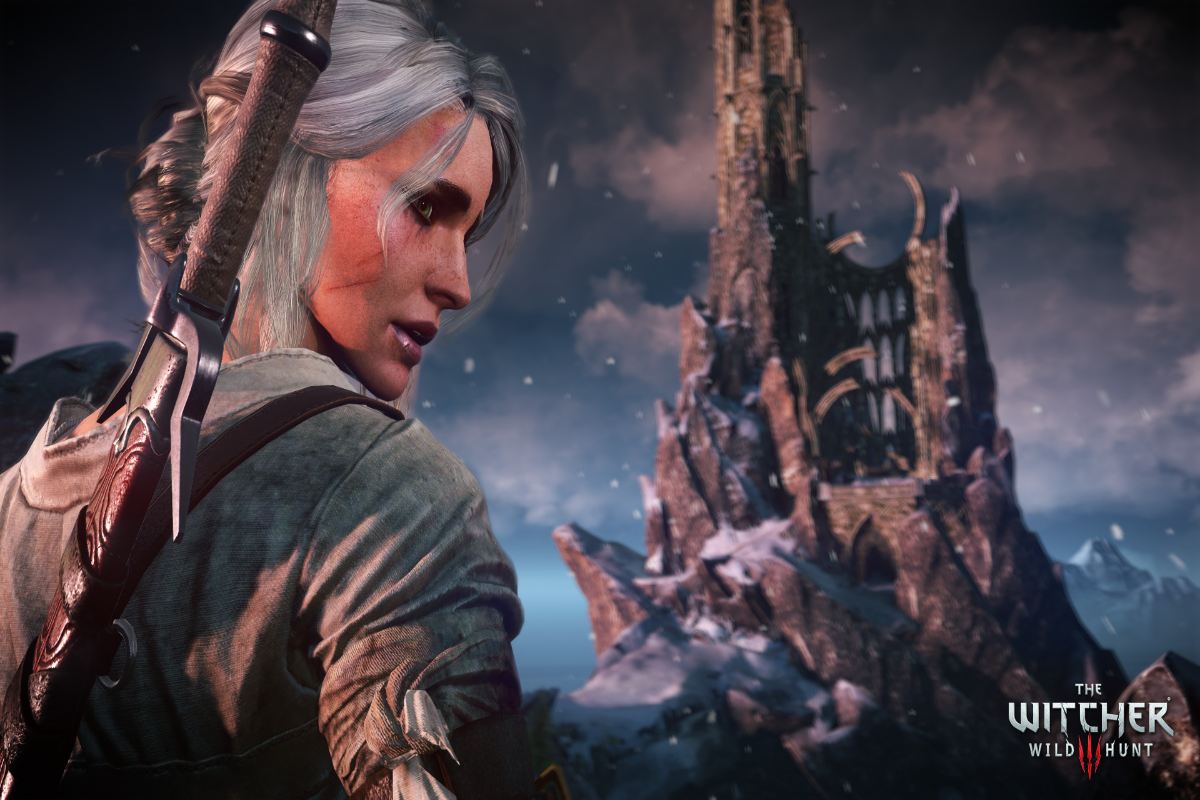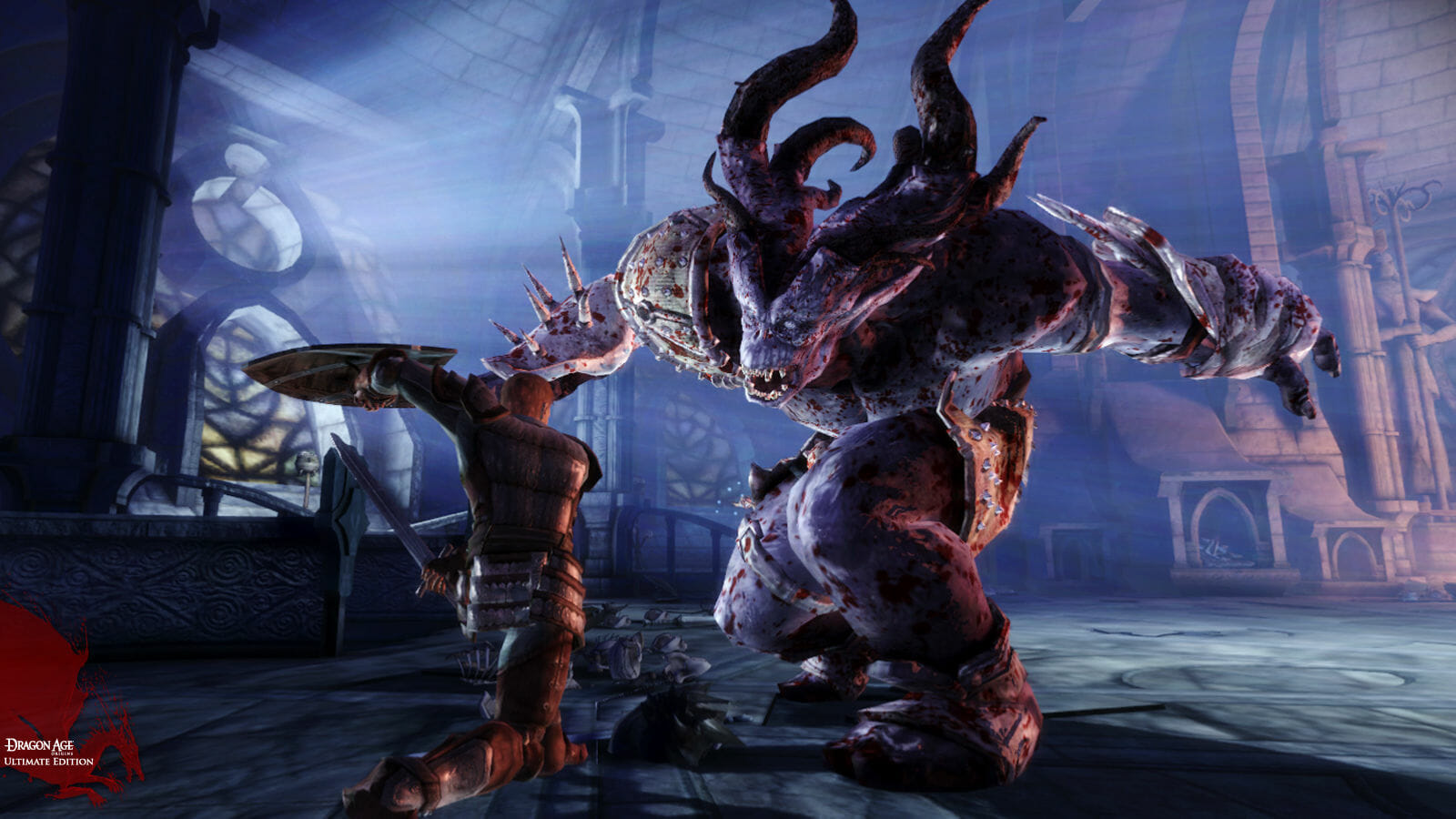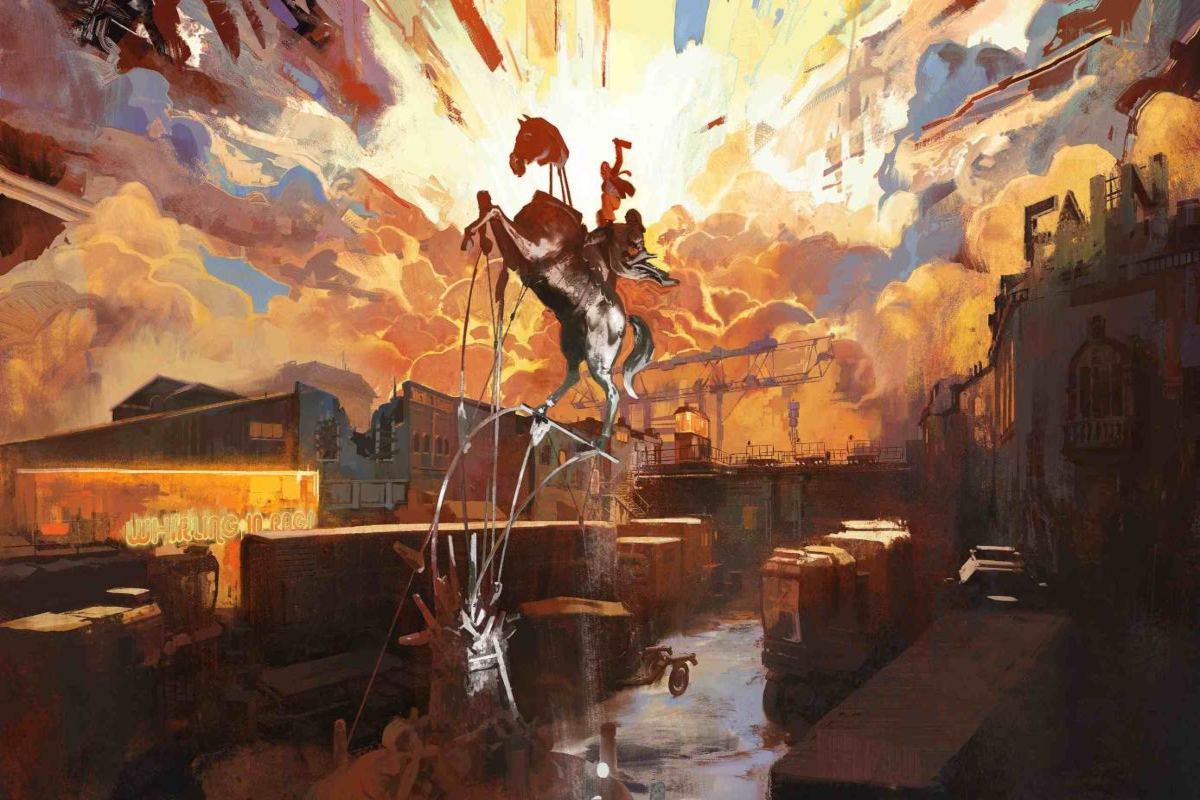
Disco Elysium | The RPG That Let Players Rewrite the Detective Genre
Art Director
Lead Composer
Disco Elysium is a narrative role-playing game released by the Estonian art collective ZA/UM in 2019. It was born from the idea of blending 1970s cop shows and Advanced Dungeons & Dragons. Inspired by classic RPGs like Planescape: Torment and Fallout 1, and with a sweep of Game Awards in 2019, it quickly established itself as a gaming cornerstone alongside titles such as Baldur’s Gate 3 and The Witcher 3: Wild Hunt.
Wake up Detective
The player wakes up as a detective with no memory after a drug- and alcohol-fueled bender in a trashed hostel room. He is in Martinaise, the poverty-stricken district of Revachol. Outside, a dead body hangs from a tree in the backyard of the hostel where he just woke up.
But he is not alone in this. Lieutenant Kim Kitsuragi has been assigned to the case and will stand by the player’s side through it all. The case must be solved. It’s all in the hands of the detective.
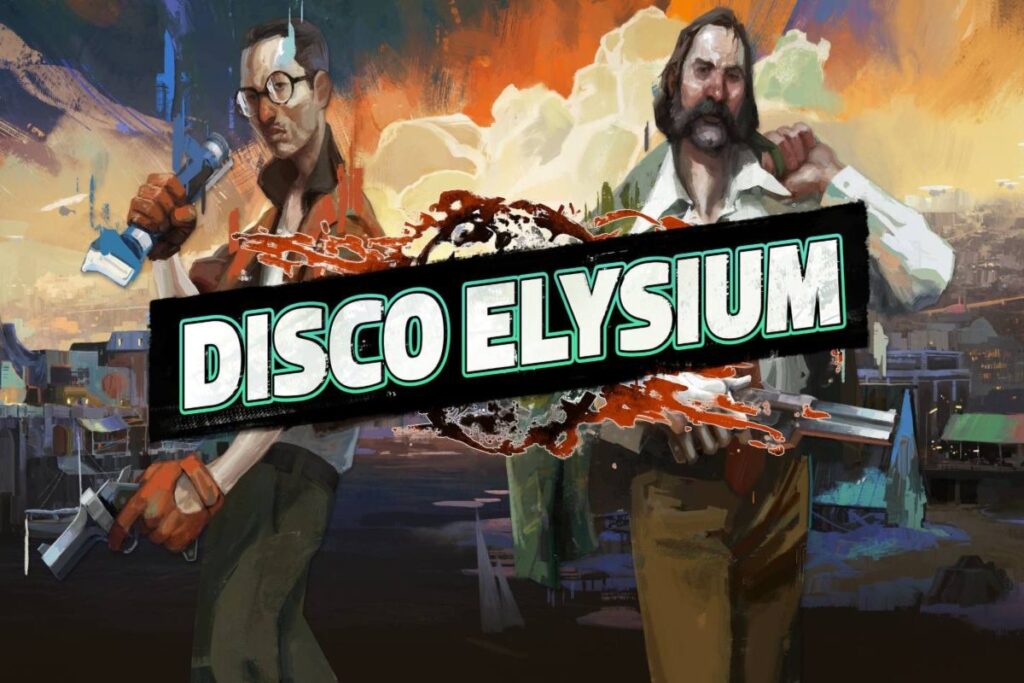
This is the premise of Disco Elysium. The game immediately sets its tone and objective by throwing the broken detective into the middle of a murder investigation. What happens next is entirely up to the player.
The inner workings of a detective’s mind
Disco Elysium is a detective RPG unlike any other. There is no combat; dialogue drives everything. Skill checks and dice rolls determine the outcomes of the detective’s challenges, making each interaction feel dynamic and unpredictable.
The protagonist’s mind is fractured into 24 distinct skills, each with its own personality. These internal voices form a constant inner dialogue, guiding, questioning, and sometimes undermining the player’s decisions. To further shape the player’s character, the game introduces the Thought Cabinet, a mental inventory where players can internalize thoughts picked up throughout the game. These can range from where the detective lives, his political ideology, and moral compass, to the detective’s sexuality or the mysterious identity of the “ex-something” who keeps haunting his life.
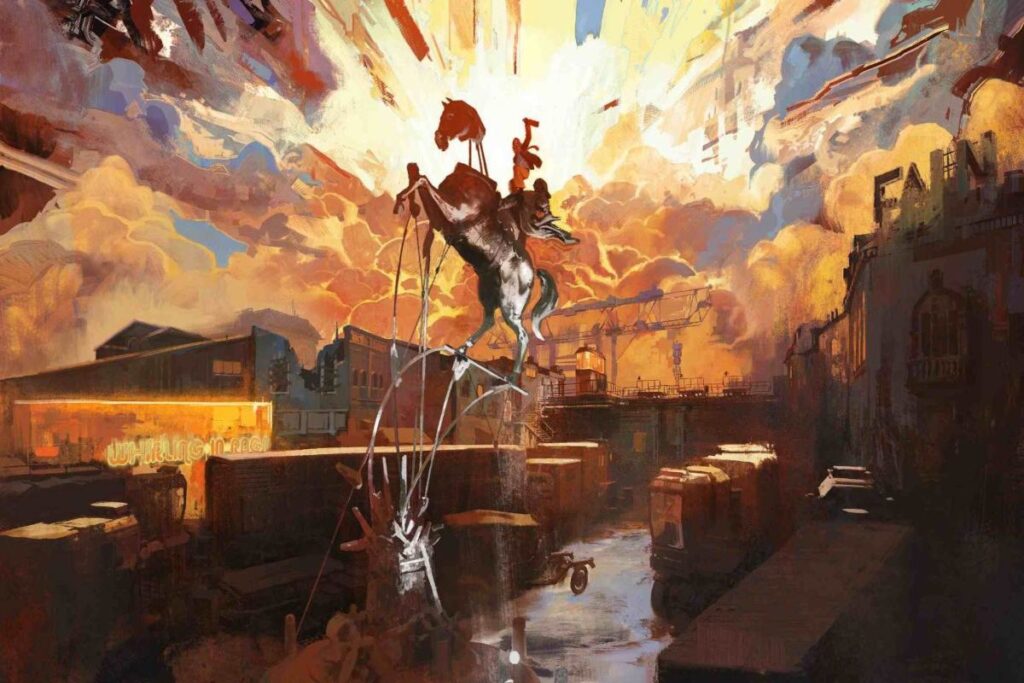
Though there’s no traditional combat system, this intricate web of mechanics and narrative interlocks seamlessly, elevating both storytelling and gameplay. With this structure, ZA/UM empowers players to explore the non-linear story in whichever way they choose.
The world of Elysium: Evil Apes on a Giant Ball
The world of Disco Elysium was shaped over years of tabletop role-playing campaigns, and it shows. The depth of detail in its setting and lore feels truly boundless. The writers cleverly use the detective’s amnesia as a narrative device to introduce the player to the world’s complex history, political ideologies, and profound characters, delivering stories that swing effortlessly between humorous and heartbreaking.
Visually, the art department brings this world to life stroke by stroke, crafting a hand-painted, impressionist landscape that feels dreamlike and grounded. Revachol‘s soundscape is equally rich. It features a haunting and atmospheric soundtrack by the British band Sea Power, which blends dark ambient tones with nostalgic melodies that linger long after the game concludes.
Thought gained: rigorous Murder Mystery critique
Disco Elysium is a unique experience: bold, philosophical, and unlike anything else in the RPG genre. However, it’s not without its flaws. The game’s primary objective is to uncover who killed the hanged mercenary, a classic murder mystery setup.
While the plot is expertly crafted and virtually bulletproof, there’s one issue that can’t be ignored: it’s impossible to identify the killer before the game’s final moments. As players guide the amnesiac detective through the streets of Martinaise, gathering clues and chasing leads, they’re never truly given the chance to solve the mystery themselves.
This design choice seems intentional on ZA/UM’s part, perhaps to reinforce the game’s existential themes or to avoid a single “true” ending. Still, from a narrative design perspective, it breaks one of the cardinal rules of the mystery genre: the reader—or player—must have a fair shot at solving the puzzle.
The torment of the past: an open case
Disco Elysium offers as many themes as people can find. It’s about love, death, politics, philosophy, and in general, the human experience. Like every great work of art, it means something different to everybody. Disco Elysium‘s roots are deeply rooted in themes of failure, the past, loss, and how to move forward.
Everything in this game is haunted by its past, from the children to the entire city of Revachol. The most affected person from the past is the one who doesn’t remember it – our detective. The detective’s breakup, his job, what he does, who he is: it’s all vanished. However, the past still haunts his life, even if he’s not aware of it. The entire game experience puts the player in the role of the detective’s judge, asking them to find the best solution to the detective’s troubles, making it an open-ended intellectual challenge. This choice to make the player a co-writer sets a new benchmark for video games, making them a modern iteration of Umberto Eco‘s Opera Aperta (1967).
All the gifts your parents gave you, all the love and patience of your friends, you drowned in a neurotoxin. You let misery win. And it will keep on winning till you die – or overcome it.
Disco Elysium (2019) ZA/UM
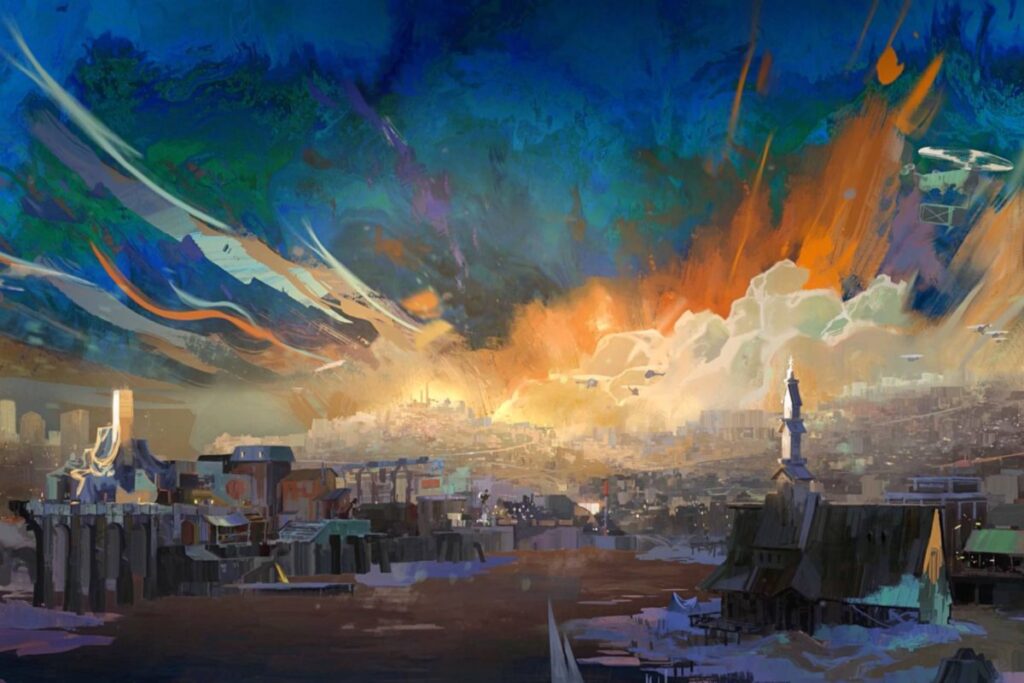
Legacy, lawsuits, and the future of ZA/UM
After Disco Elysium exploded into worldwide success, it seemed that ZA/UM had secured its place in the pantheon of the video game industry. However, just one year after the release of the more polished Disco Elysium: The Final Cut, Martin Luiga, founder of the ZA/UM art collective, published an article announcing the dissolution of the collective.
Soon after, a legal dispute over the rights to the game and its world emerged between ZA/UM and Robert Kurvitz, the Creative Director behind Disco Elysium. Following the conflict, all of the founders left ZA/UM. Out of this fracture, several new studios were born: SUMMER ETERNAL, Red Info Ltd, Dark Math Games, and Longdue Games.
Each of these studios claims to be the true heir to the legacy of Disco Elysium. For now, we’ll let their upcoming games speak for themselves.
Oh yes. This is real darkness. It’s not death, or war, or child molestation. Real darkness have love for a face. The first death is in the heart.
Disco Elysium (2019) ZA/UM
Tag
Buy a ☕ for Hypercritic







